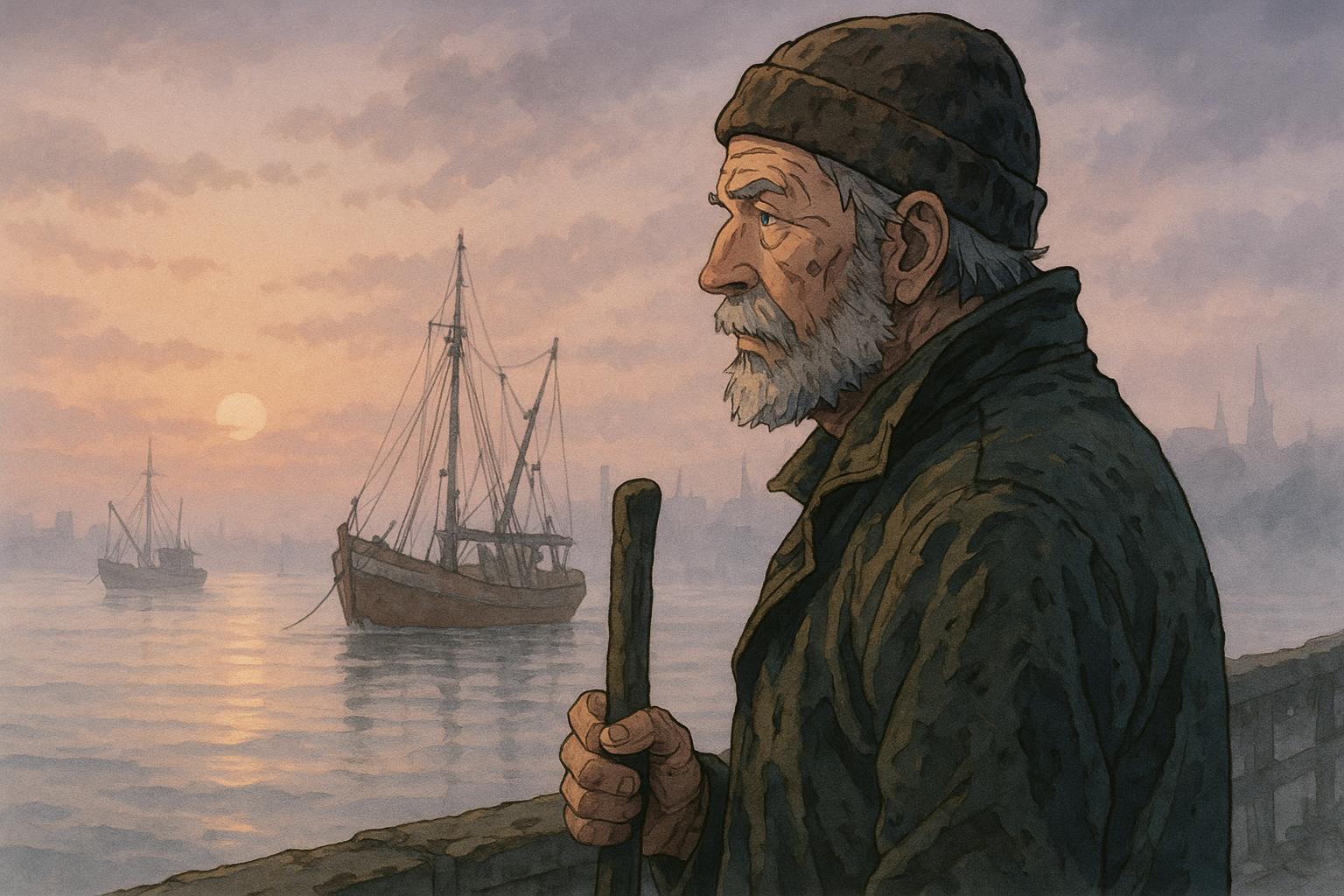Matty Smith gazes out at the serene expanse of the Thames Estuary in Essex, where his love for fishing began at the tender age of 12. With a four-decade career as a skipper, he embodies a longstanding tradition in Leigh-on-Sea, a town with nearly a millennium of fishing heritage. Yet, the landscape of this proud industry is shifting perilously. "It's quite bad at the moment," Matty declares, citing declining fortunes for local ports like Rye and his own home. The British fishing industry, once a cornerstone of coastal communities, now faces existential threats.
The post-Brexit reality has been harsh for many fishermen who, like Matty, voted to leave the European Union in search of greater control over British waters. Nevertheless, the promise of reclaiming those waters appears increasingly hollow. Despite Brexit, European fishing boats continue to exploit British marine resources, with access guaranteed until June 2026 under the Trade and Cooperation Agreement, albeit with a gradual 25% reduction in quotas. This has not quelled concerns; rather, it has amplified fears that fishing access may be negotiated away in broader discussions, such as those concerning defence and food trade with the EU.
The current negotiations led by Prime Minister Sir Keir Starmer have raised hackles in the fishing community. While the Labour government insists that fishing concessions will not be tied to other agreements, industry leaders warn that the value of their marine assets risks being realised far too late. Mike Cohen, Chief Executive of the National Federation of Fishermen’s Organisations, resonates with Matty’s concerns over potential betrayals. He asserts that the historic fishing rights represent a vital national resource, vital for food security and community livelihoods.
Fishing rights negotiations are intensifying as EU member states urge the UK to grant longer-term access to its waters. The EU's strategy seems increasingly predicated on establishing a "fish for food" exchange—greater fishing access for concessions on veterinary agreements that would facilitate smoother food trade. This situation is compounded by the wider UK-EU relationship, particularly in light of recent agreements intended to reset diplomatic ties. Starmer has been proactive, engaging in high-level talks with key European leaders. However, the reception by conservative factions within the UK government remains critically sceptical, viewing any compromises as detrimental to national sovereignty.
Cohen highlights the stark economic imbalance between EU and UK fisheries, noting that EU boats currently harvest £450 million to £500 million annually from UK waters, while British boats only recover £75 million from European fishing grounds. This disparity reflects a dependency that many fishermen feel is fundamentally flawed and predicated on unfair practices by foreign fleets. Both Matty and Mike Cohen have voiced deep apprehensions over the industry's future, particularly as the ageing workforce faces dwindling prospects for younger recruits. Without viable economic incentives, a generation may choose to abandon the trade, dooming fishing ports to decline.
As the summit approaches, both sides remain entangled in a web of interconnected agreements, including youth mobility and food trade facilitation. British supermarkets support a potential veterinary agreement, despite its implication that the UK might have to align with EU standards—a concept fiercely contested by many UK politicians. Indeed, the complexities of these negotiations signal a potential realignment of fishing access and regulatory oversight, with decisions looming in high-stakes talks set against a backdrop of heightened geopolitical tensions.
The upcoming discussions appear pivotal not just for the fishing industry, but for the broader British identity post-Brexit. As Matty Smith poignantly points out, the rippling effects of fishing policy extend far beyond economic statistics; they touch on the very fabric of British coastal communities, echoing a call to ensure that the benefits of their natural resources remain within the nation’s grasp. The stakes are high, and for many, failure to secure favourable outcomes could represent the ultimate betrayal—one that jeopardises both industry and heritage.
Reference Map
- 1, 2, 4, 6
- 1, 2, 6
- 2, 5, 6
- 1, 2, 5
- 1, 2, 3, 4
- 3, 4, 5
- 3, 4
Source: Noah Wire Services
